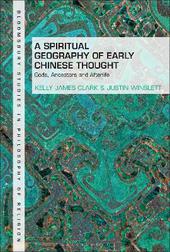
|
A Spiritual Geography of Early Chinese Thought: Gods, Ancestors, and Afterlife
Hardback
Main Details
Description
It is widely claimed that notions of gods and religious beliefs are irrelevant or inconsequential to early Chinese ("Confucian") moral and political thought. Rejecting the claim that religious practice plays a minimal philosophical role, Kelly James Clark and Justin Winslett offer a textual study that maps the religious terrain of early Chinese texts. They analyze the pantheon of extrahumans, from high gods to ancestor spirits, discussing their various representations, as well as examining conceptions of the afterlife and religious ritual. Demonstrating that religious beliefs in early China are both textually endorsed and ritually embodied, this book goes on to show how gods, ancestors and afterlife are philosophically salient. The summative chapter on the role of religious ritual in moral formation shows how religion forms a complex philosophical system capable of informing moral, social, and political conditions.
Author Biography
Kelly James Clark is Distinguished Professor of Philosophy at Ibn Haldun University, Istanbul. Justin Winslett is University Lecturer in Chinese Studies at the University of Sheffield, UK.
ReviewsOf the many Orientalist myths about China, the idea that the 'humanist' early Chinese lacked anything like a Western conception of the supernatural, souls or god(s) is one of the most pernicious. Clark and Winslett's careful debunking of this misconception is an important and useful corrective. * Edward Slingerland, Professor of Philosophy, University of British Columbia, Canada * Previous discussions of Chinese views on spirituality have tended toward one of two extremes. They either treat Chinese philosophers as atheistic materialists or they assimilate Chinese spirituality to the Abrahamic religions. A Spiritual Geography of Early Chinese Thought, by Kelly James Clark and Justin Winslett, is a welcome corrective to these one-sided accounts. With remarkable nuance, Clark and Winslett illustrate the diversity and complexity of Chinese views on spirits, gods, and the afterlife. * Bryan W. Van Norden, James Monroe Taylor Chair in Philosophy, Vassar College, USA * Kelly James Clark and Justin Winslett take readers on an illuminating journey through early Chinese religion, rewriting the interpretive route they call 'the naturalizing narrative' and correcting its four misleading landmarks: (1) The Chinese don't believe in God or the afterlife; (2) Belief in the High God and belief in the afterlife were common among peasants and in the Mozi, but not in the philosophical texts; 3) The Confucians don't believe in God or the afterlife; and (4) God and the afterlife are morally irrelevant to Confucian moral theory. * Ronnie Littlejohn, Chaney Distinguished Professor of Philosophy, Belmont University, USA *
|